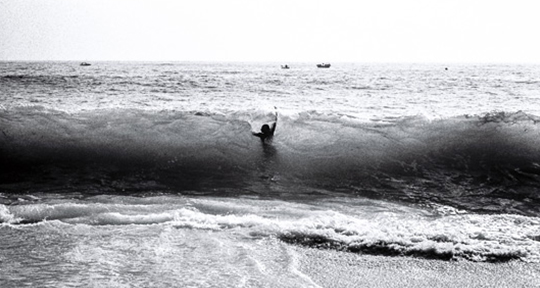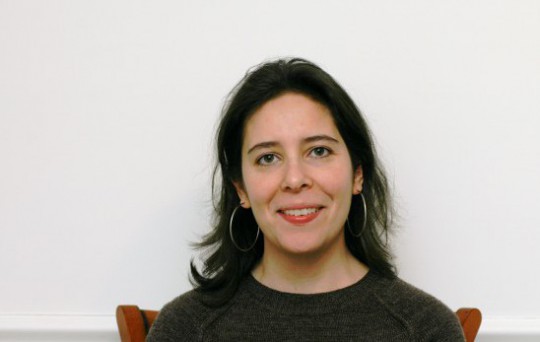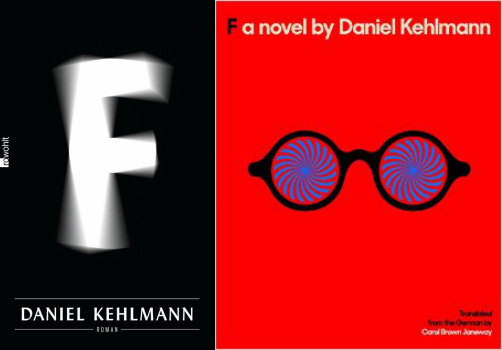In his latest novel, the Israeli author David Grossman sets himself a near impossible task—to write a tale of tragedy set at a comedy club, all in the course of single stand-up set. As Gary Shteyngart warns in The New York Times Book Review, it’s a work that “only a true master—a Lenny Bruce, a Franz Kafka—could dream of replicating. Don’t try this at home, folks. I know I won’t.” A Horse Walks into a Bar, translated by Jessica Cohen and just longlisted for the Man Booker International Prize, is a 194-page tour de force and, again citing Shteyngart, “there is nothing extraneous, not one comma, not one word, not one drop of comic’s sweat . . . Its technical proficiency is astounding.” Of course he’s referring here to the English-language edition, not to the original Hebrew, which makes this is in large part a compliment to Jessica Cohen, who somehow gets the jokes into English. This despite the translator’s three greatest obstacles: puns, idioms, and foreign context. Even the setting of the novel, Netanya—an apparently dumpy Israeli city—is the butt of countless jokes. Won’t the American reader, unfamiliar with the place or references, yawn through this all? Not this American reader, who read the novel in a single sitting, laughing and crying, at first in turns and, by the end, simultaneously. Figuring out how Cohen managed to “[turn] the performance into fluent, America-style patter, bad-a-bing bad-a-boom,” as Ken Kalfus writes for The Washington Post, is precisely why I’m talking to her now.
Here’s a quick run-down of the plot: Dov Greenstein (stage name: Dovaleh G) is an aging comedian with a tragic past. In one night of stand-up—to which he invites an old friend, Avishai Lazar, a witness to the defining event of this tragic past—Dov takes the crowd on something of a haunted hay ride. He cracks them up, taunts them, taunts (and hits) himself, bores them, entertains them again, loses their respect, and sheds his dignity openly, meanwhile sharply critiquing his native country and opening up important discussions about historical atrocities (his mother was a Holocaust survivor) and personal grief. The tale’s central event, recounted between barbs, potshots, and one-liners, takes place at a junior Israeli Army camp, when Dovaleh was 14—but that’s all I’ll say.
Todd (T): Here you have a book set in Netanya, a city that no American—and maybe no Israeli?—has ever heard of, and, as in most stand-up sets, the comedian breaks the ice by slamming the host city. Again and again. How did you approach this dilemma? Did you find yourself having to add context here and there, to let foreign readers in on the joke?
Jessica (J): Every translator knows she will run into something maddening in the course of a translation—a colloquialism with no equivalent in English, a culturally-specific term that can’t be neatly translated, etc. But I don’t usually expect to hit this brick wall in the very first sentence of a book, and that’s what happened with A Horse Walks into a Bar. The novel begins with the protagonist, a stand-up comedian named Dovaleh G, yelling from offstage (translated literally): “Good evening, good evening, good evening Ceasariyaaaah!!!” So right off the bat we have the set-up for a joke (which, as you mentioned, is always a challenge to translate), a city that most readers will never have heard of, and to make it worse, this is a line of dialogue, which means there’s little room for explication or “stealth glossing” (to borrow a term coined by Susan Bernofsky). Two paragraphs later, the joke unfolds: “Oh, wait a minute… this isn’t Caesarea, is it?” Dovaleh G then spends several lines building up (and hamming up) the realization that he is in fact not in Caesarea but in Netanya. At this point, if I’d just left things as is, most readers would probably have figured out that there is some sort of dichotomy here: Caesarea is not like Netanya; the speaker is disappointed with his actual location. But that’s not enough to make it funny, and so I needed to somehow get across the conflicting images of these two cities, which every Israeli reader is familiar with. I decided the only way was to add a touch of characterization at the beginning, which is why the final English translation reads: “Good evening! Good evening! Good evening to the majestic city of Ceasariyaaaah!” (the addition is underlined). My hope is that not only does this give an indication of what type of city Caesarea is (an exclusive seaside town populated by the rich and famous) but also gets across some of Dovaleh’s hallmark cynicism.
As for Netanya, it is the butt of many jokes in this book, and not completely without reason. It’s not a “dump” in the traditional sense—Netanya sits on the coast of the Mediterranean, only 20 miles north of Tel Aviv, and has some beautiful beaches. But that’s probably the best thing it has going for it. Roughly a third of its 200,000 residents are immigrants, many of whom are unemployed, and it has a long-standing association with organized crime, which is the main basis for the book’s Netanya-related jokes. I remember Grossman mentioning that among the many letters he received from readers after the book came out, quite a few were from Netanya residents who were outraged at his perpetuation of the stereotypes about their city! But back to the translation: once I had done what I could to establish the general schema of Caesarea vs. Netanya, I had to trust that the nuances of Netanya’s image would come through in the other jokes and put-downs that Dovaleh strews throughout his performance.
READ MORE…



